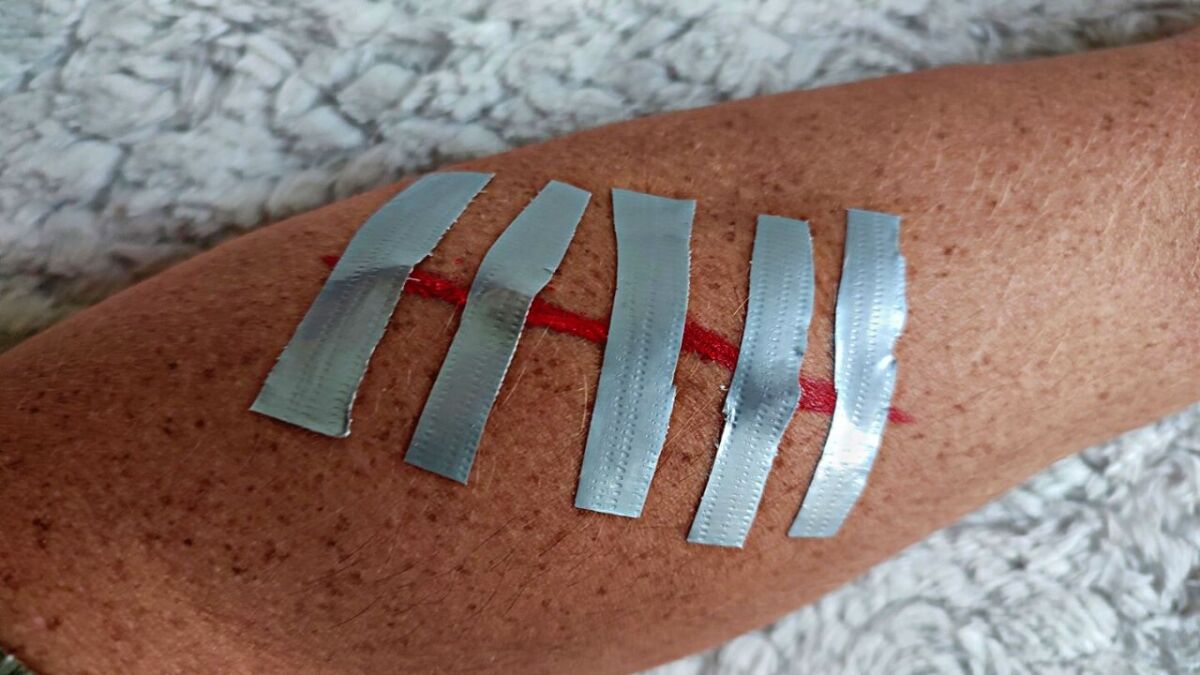
How to treat a wound in an emergency with duct tape?
👉 The key facts from this guide
- Tissue adhesive tape can be used for initial treatment of cuts, especially when there is no dressing or plaster available.
- The tape holds the ends of the wound together and prevents the entry of bacteria, which can prevent infections.
- The wound should be cleaned before applying the tape to remove harmful bacteria.
- The tape should be applied to the wound in a way that completely covers and holds it together.
- If possible, an antibacterial cream or ointment should be applied to the wound to further reduce the risk of infection.
- The wound should be regularly checked, and the tape should be changed as needed to ensure a clean healing environment.
If you have a cut, you probably won't think of first aid with duct tape or adhesive tape, right?
It's not to be blamed, after all, the primary use of duct tape is not wound care.
Nevertheless, this useful tool is also suitable for it, believe it or not.
Especially with cuts, particularly when they are bleeding heavily, quick care may be necessary.
If you don't have a bandage or plaster nearby, you can use adhesive tape instead.
This scenario may primarily occur in survival situations. And if your medical supplies are already depleted, or you don't have them at all, then turn to duct tape.
How does duct tape help your wound?
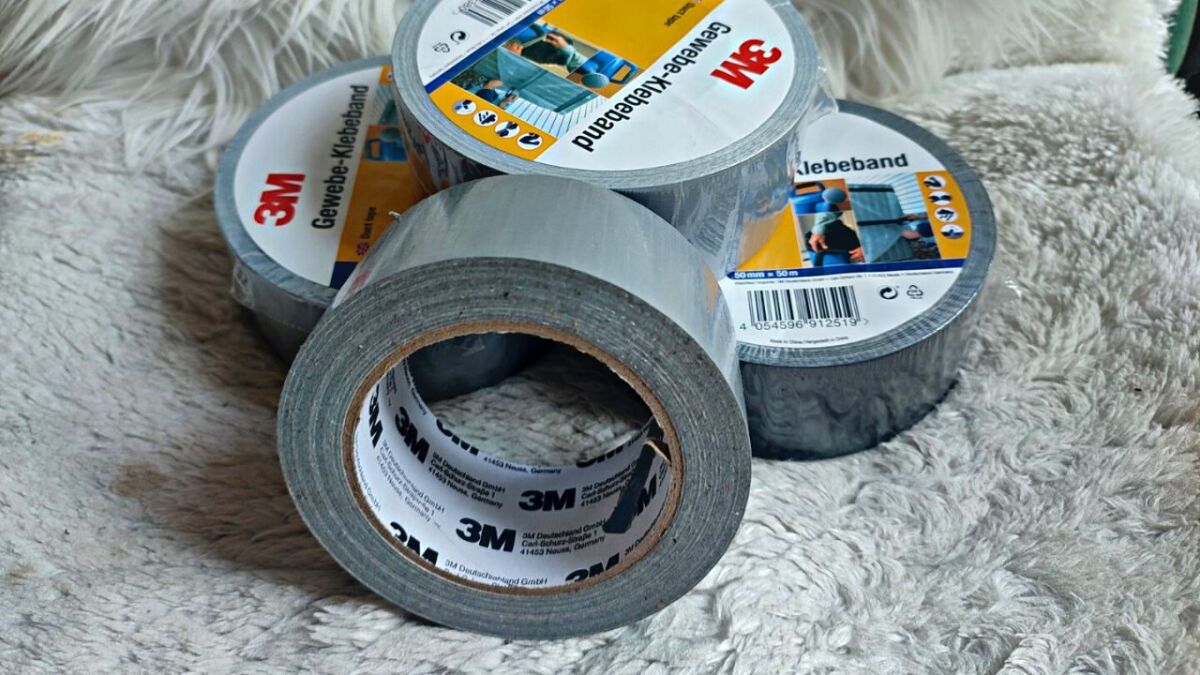
Of course, not every wound can be fully treated with adhesive tape, but this clever tool can help the body with self-healing.
The duct tape holds the ends of the wound together and closes it, making it more difficult for bacteria to penetrate and cause dangerous infections.
If you leave the wound open, there is a constant risk of infection, and wound healing occurs more slowly. So make sure the wound stays closed!
Does every cut need to be treated?
Whether your cut should be treated or closed, you have to decide on the spot. There are a few hints and warning signs that can serve as indicators, so you can orient yourself accordingly.
- Is the wound bleeding?
- How heavy is the bleeding?
- Is the wound open?
- If yes, how wide?
- Are you in an environment contaminated by dirt?
Don't get me wrong: if you have an open wound, it should definitely be closed, regardless of where you are.
These factors are merely meant to help you determine how urgently the cut needs to be taken care of.
And even more importantly: If a wound goes deep or has injured arteries and is bleeding heavily, a pressure bandage is urgently needed to counteract the blood loss. If you are unsure about the severity of an injury or what to do, always call a doctor.
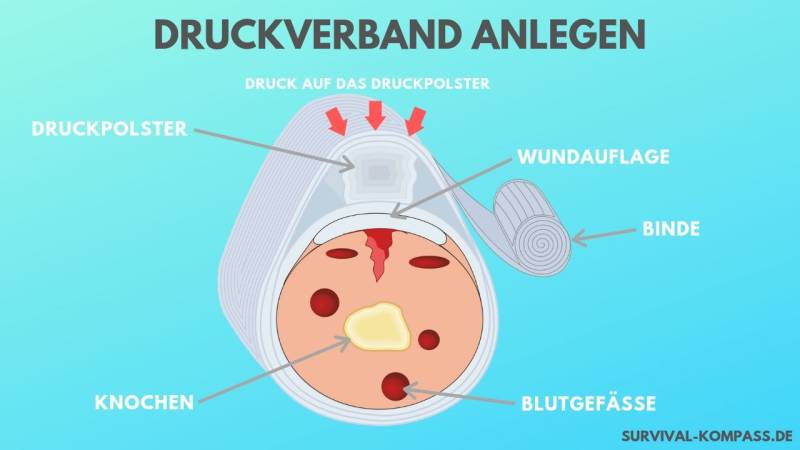
How to treat your wound with duct tape - a guide
1. Clean the wound
Most importantly, like with any medical procedure, you should clean the wound. Use clean water and soap or disinfectant.
Before closing the wound, make sure there are no harmful bacteria already inside it.
Also make sure to stop or at least slow down the blood flow. Apply some pressure to the wound, as you probably know from everyday life.
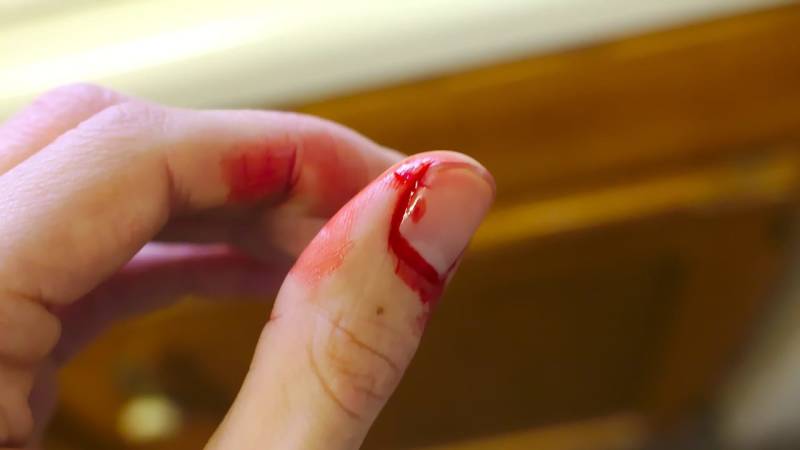
2. Cut the duct tape to size
To treat your wound with duct tape, what do you need?
Right, duct tape!
Cut a piece that is slightly larger than your wound. It should cover it completely.
If you want to hold a larger cut with several pieces of duct tape, cut them into strips approximately 1-1.5 cm wide, similar to a band-aid. You can then apply these strips one after the other to hold the wound together.
3. Attaching to the wound
If you are using a single piece of duct tape, place it directly over the wound to hold it together.
If you are using multiple pieces to cover a large cut, place them along the length of the wound like stitches to hold it together. Be sure not to attach the duct tape too tightly or loosely.
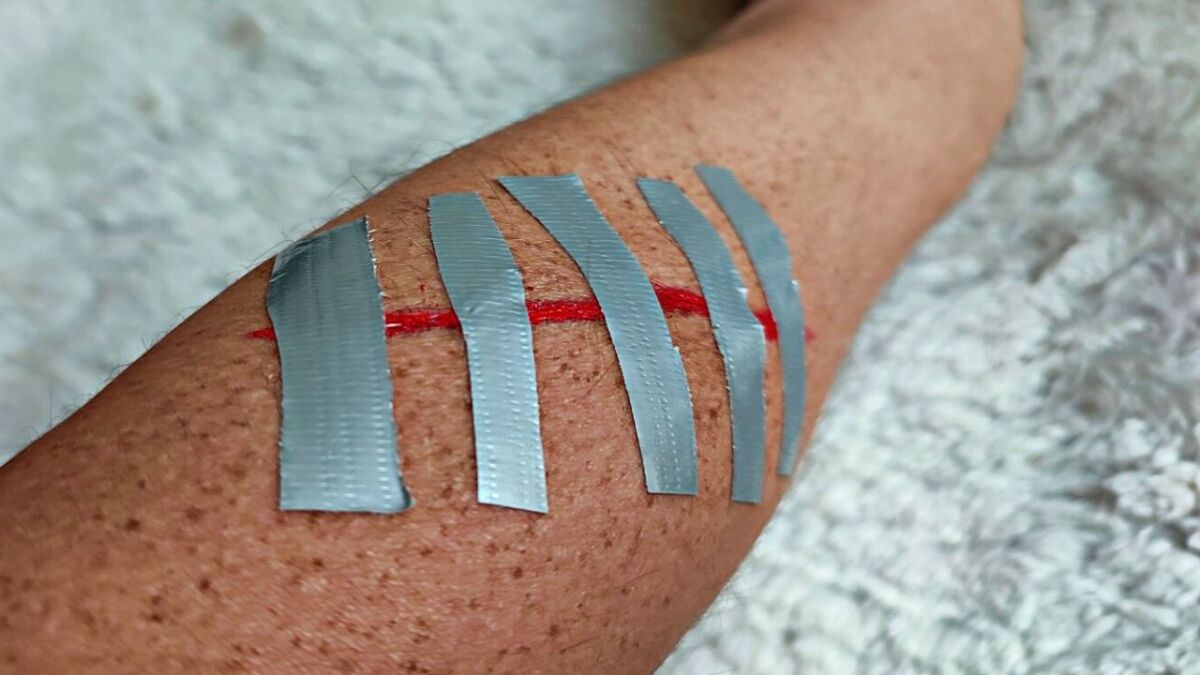
You want to make sure that the tape serves its purpose, and you do not want to risk having to redo your makeshift medical procedure because it causes you more pain than the original wound.
4. Use disinfectant creams
If everything has gone well so far, and you have access to it, apply antibacterial creams or ointments to the wound.
The wound and the duct tape are still not sterile, so there is still a risk of bacterial infection. Disinfection helps to avoid this as much as possible.
How to keep the wound clean
The greatest risk of any wound, as already mentioned, is an infection that can result in sepsis or blood poisoning. Here are some tips on how to prevent this.
Cover the wound with clothing
To prevent additional bacteria, viruses, or other harmful substances from entering the wound, you should always cover it with clothing. Keep the wound as dry and clean as possible.
Change the cover regularly
Naturally, you shouldn't leave the same cover on your wound day after day. Bacteria can attach themselves particularly well to the spot where the clothing touches the wound.
It's best to change the cover every one to two days. That way, you can wash the previous cover and reuse it.
Monitor the wound closely
You'll feel infections and inflammations over time, but if you're in the middle of a survival scenario and pumped full of adrenaline, pain can go unnoticed.
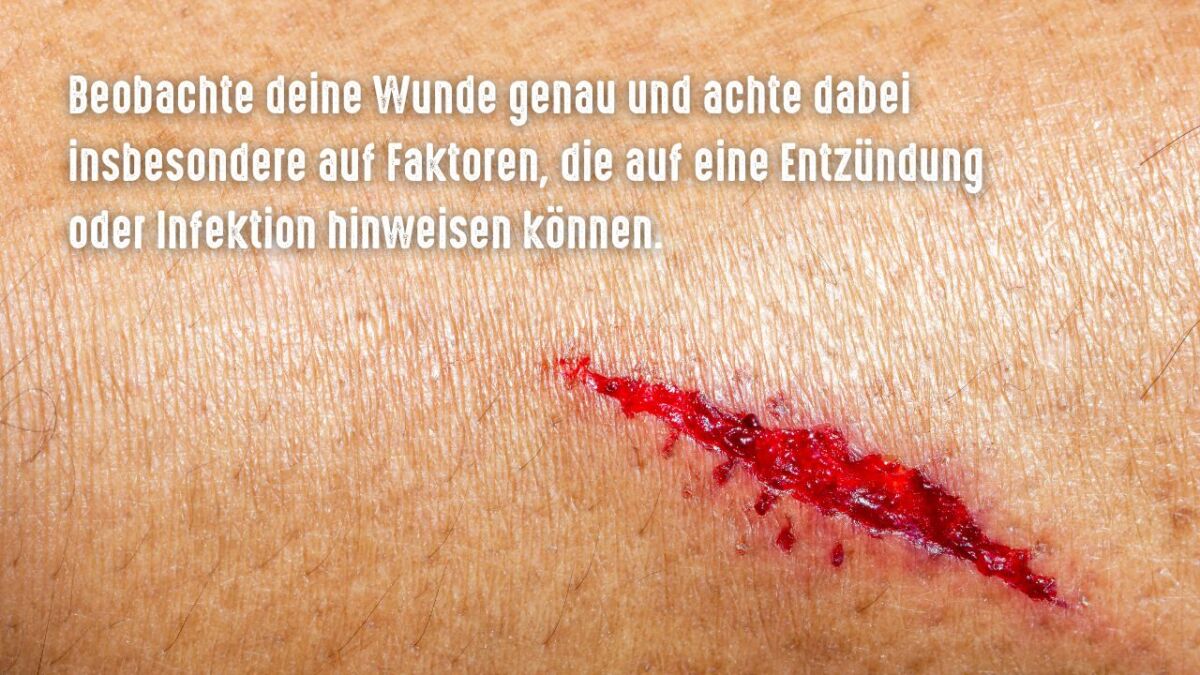
So monitor your wound closely, especially watching for these factors that can indicate inflammation or infection:
- Pus coming out of the wound or around the wound
- The wound or the surrounding area is heavily reddened
- The area around the wound is warmer than other body parts
- There are strong swellings at the wound or around it
Check your wound regularly. If any of the above signs or a combination of them occur, consider taking antibiotics.
Sepsis is one of the worst things that can happen to you in a survival scenario. Therefore, be responsible with your body in absolutely any situation.
Conclusion: Duct tape may not be the number one choice, but it serves its purpose
Of course, if available, you will primarily use your first aid kit when suffering from a wound of this nature.
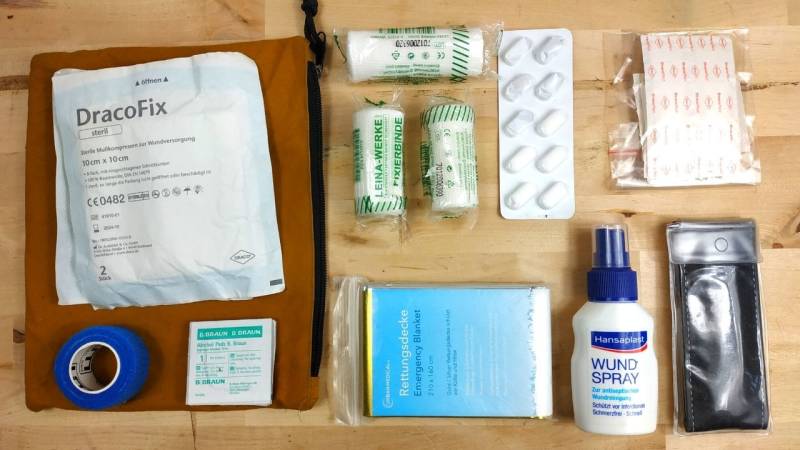
In fact, this article is more about being prepared to utilize everything around you rather than actually using duct tape to close wounds.
You must understand that in survival situations, you will not always have access to the things that are commonplace in everyday life.
Therefore, you must be creative and improvise when necessary. Keep in mind through this article in particular that numerous things can be repurposed in an emergency if you are just a little creative.
And as you know, creativity is an absolute must for survival!
If you are also a fan of duct tape, then you may be interested in the guide "13 ways duct tape can help you in emergencies".


Author of the guide
Martin Gebhardt
Hey, I'm Martin. On my blog, you will learn the basics and numerous details about living in the wild. I think survival, bushcraft and the good life in nature are the keys to happiness. Find me here on Instagram or on YouTube. You can find more about my mission on the About Me page.
Was this guide helpful?
14 people found this guide helpful.
5.00 out of 5 points (14 Ratings)
Comments (0)
This post may contain affiliate links. So if you click on the links and make a purchase, I will receive a small commission at no additional cost to you. Click here, to learn more about it.


